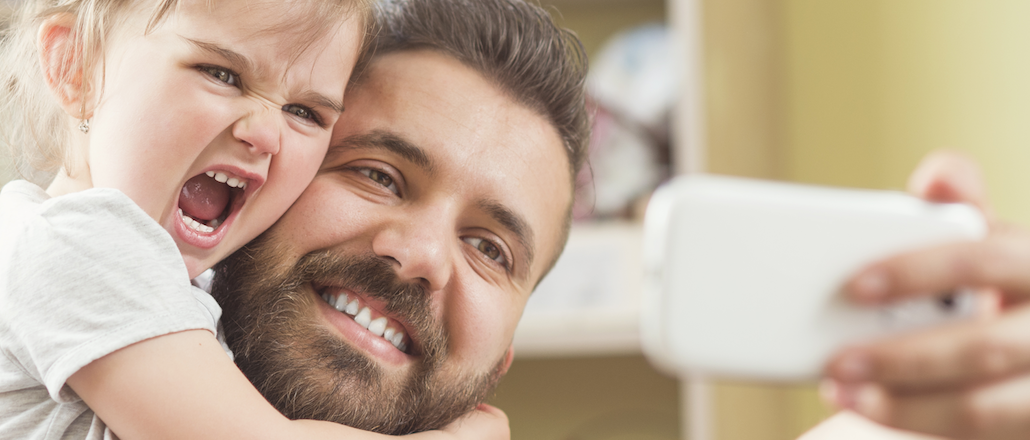
For all the attention that’s been paid to millennial moms lately, their counterparts have gone curiously understudied. But marketers take note: 4.5 percent of the U.S. adult population are dads between the ages of 18 and 34.
And as with the rest of their cohort, millennial dads have their own unique characteristics: They are more likely to participate in household chores and decisions, do the shopping, and use technology while doing all of the above.
“Millennial dads are leading the charge in redefining fatherhood,” said Kasi Bruno, svp and strategic planning director at Y&R Toronto. “They aren’t ‘deadbeat dads’; they are actively making parenting decisions.”
Here, then, is the anatomy of the millennial dad:
They make more decisions than their predecessors.
Millennial dads not only spend more time with their kids than dads from previous generations but are also more involved in their children’s lives — from engaging in domestic tasks like cooking and packing lunches to housekeeping and planning fun activities.
According to Pew Research Center, fathers have nearly tripled the time they spend with children since 1965, and the number of stay-at-home dads has nearly doubled in the past two decades. BabyCenter’s “Millennial Dads Study” from this month also revealed that 88 percent of millennial dads aspired to be “the perfect dads” as compared to fewer millennial moms.
And they’re doing a lot more shopping.
Millennial fathers differ significantly from their single counterparts: A recent report titled “Who’s Your Daddy” by agency Y&R found that an overwhelming 80 percent of millennial dads claim they do primary or shared grocery shopping, making their own choices rather than just following orders. This is significantly higher when pitted against 45 percent of all dads surveyed.
“CPG brands can benefit from changing packaging, demos and technology to attract more millennial dads,” said Bruno. Some have already taken note: Dove Men+Care’s “Real Strength” campaign from earlier this year subverted stereotypes of dads as hapless dorks.
But they prioritize quality over quantity.
The millennial affinity for quality experiences makes them more than willing to spend money if the branding is right. “Give them utility, and they will be loyal to your brand,” said Bruno.
According to the Y&R study, this characteristic extends to dads as well. But they differ from moms in that they’re more likely to buy on impulse in most categories — so brands should be making efforts to reach out to this demographic at the point of purchase.
And they rely on technology for a parental assist.
Like the rest of their ilk, millennial fathers rely heavily on mobile to both shop and research shopping decisions.
Not only are they receptive to mobile offers, including geo-targeted notifications, but seven in 10 millennial dads surveyed by BabyCenter also reported they have sought parenting information online — with 59 percent of them doing so on mobile. A recent Google Report also found that searches for baby-related terms on mobile have grown 52 percent year-over-year and baby-related “how-to” searches are growing 49 percent year-over-year.
“The ‘momvertising’ space is already so saturated, it makes sense for brands to cater to this group,” said Mike Rothman, co-founder of the new parenting site Fatherly. “Brands shouldn’t just be looking at them on a campaign basis but reorganizing themselves internally to make it a liaison effort without overtly caricaturing them.”

And yes, they still care about how they look.
While dads may be sharing more responsibility, they aren’t necessarily neglecting their health or appearance. The men’s grooming industry is booming, growing at a rate of 6 percent annually, and it is estimated to be worth $3.2 billion by 2016.
“Men today are prioritizing care in their lives, from their role as a caregiver, to how they are caring for themselves,” said Jennifer Bremner, director of marketing for Dove Men+Care. “Dove Men+Care is not only committed to bringing real care to men’s lives with our products but accurately depicting how real men care in their lives through our marketing. This includes their experiences as fathers.”
Parallel to this has also been the rise of social media accounts like “DILFs of Disneyland,” an Instagram account that chronicles the adventures of, ahem, attractive dads with their toddlers at the happiest place on earth.
More in Marketing

YouTube’s upmarket TV push still runs on mid-funnel DNA
YouTube is balancing wanting to be premium TV, the short-form powerhouse and a creator economy engine all at once.

Digiday ranks the best and worst Super Bowl 2026 ads
Now that the dust has settled, it’s time to reflect on the best and worst commercials from Super Bowl 2026.

In the age of AI content, The Super Bowl felt old-fashioned
The Super Bowl is one of the last places where brands are reminded that cultural likeness is easy but shared experience is earned.





